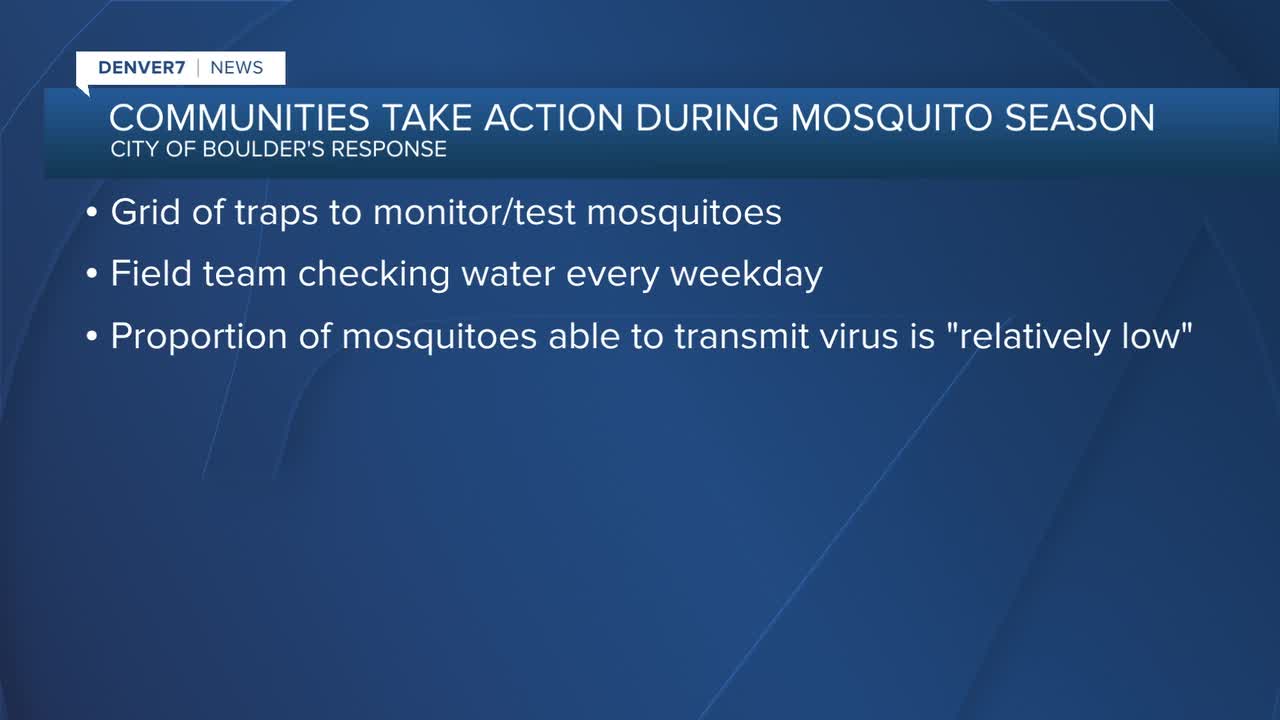DENVER — After Adams County health leaders confirmed the first two human cases of West Nile virus this season, Denver7 reached out to other communities to learn how they are limiting the spread of the virus.
Below are the responses we got back:
The Colorado Department of Public Health and Environment (CDPHE) said the state typically begins seeing more West Nile cases around mid-July. The virus is most commonly spread through mosquito bites, according to the CDC.
Dr. Christopher Post, an emergency medicine physician with AdventHealth, said the increase in cases is normal during the summer, similar to how flu cases rise in the winter and fall. Dr. Post said three out of four people who get West Nile may not know they have it and show no symptoms. The other 25% of people with the virus may present symptoms like a fever, chills, body aches or a rash across the chest, back and arms.
"If you're going to go out camping or fishing or something and there's a lot of mosquitoes around, you can obviously use insect repellent. You can wear long sleeves, pants or shirts if you want. But the most important thing is, again, most people who get this really don't even have any symptoms," Dr. Post said.
Related coverage:
- First human cases of West Nile virus in Colorado detected in Adams County
- West Nile Virus detected in Weld, Boulder county mosquitoes as season shows early start
- West Nile detected in mosquito sample in Larimer County
- Colorado health leaders remind us of ways to protect ourselves as mosquito season arrives






